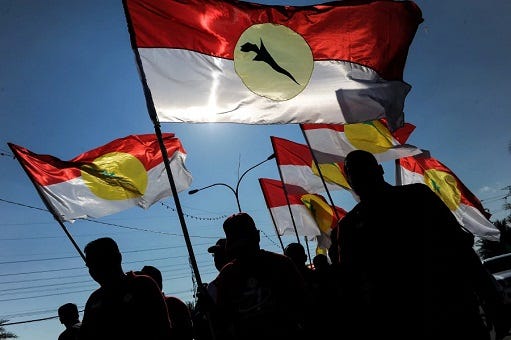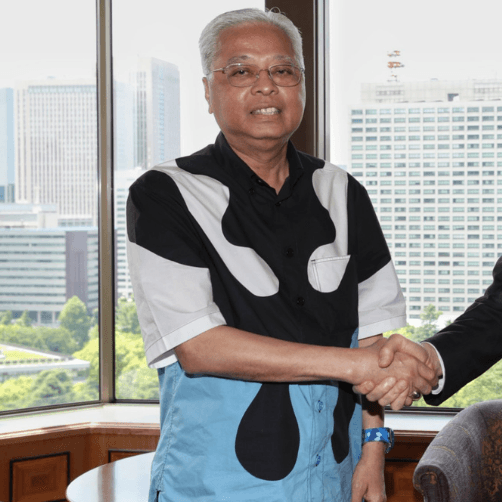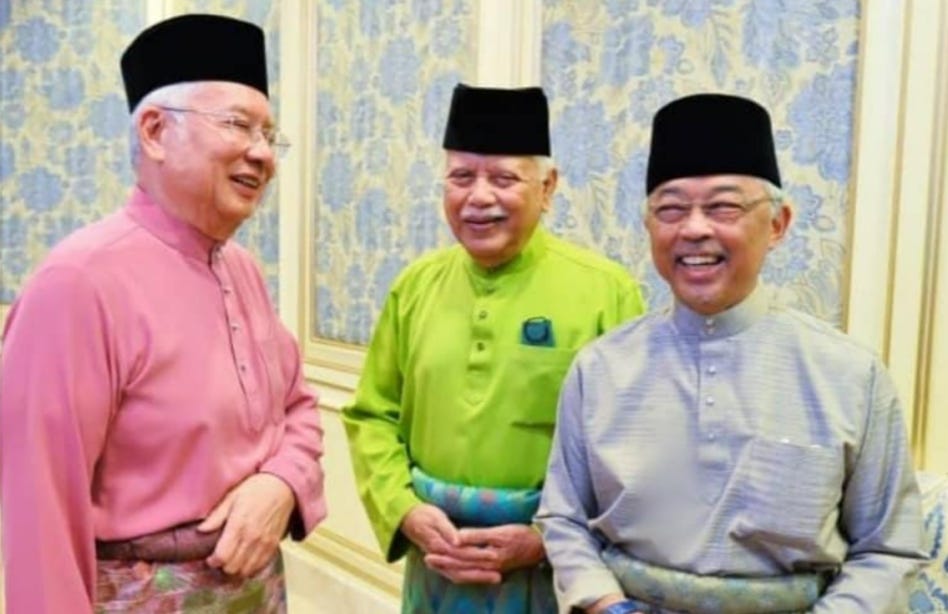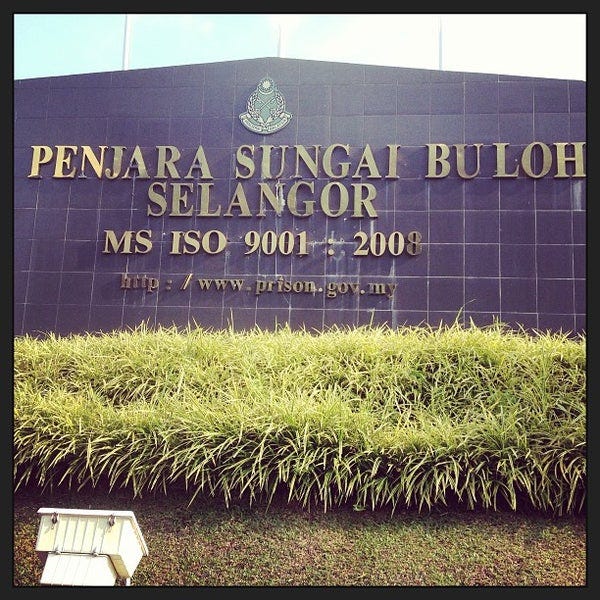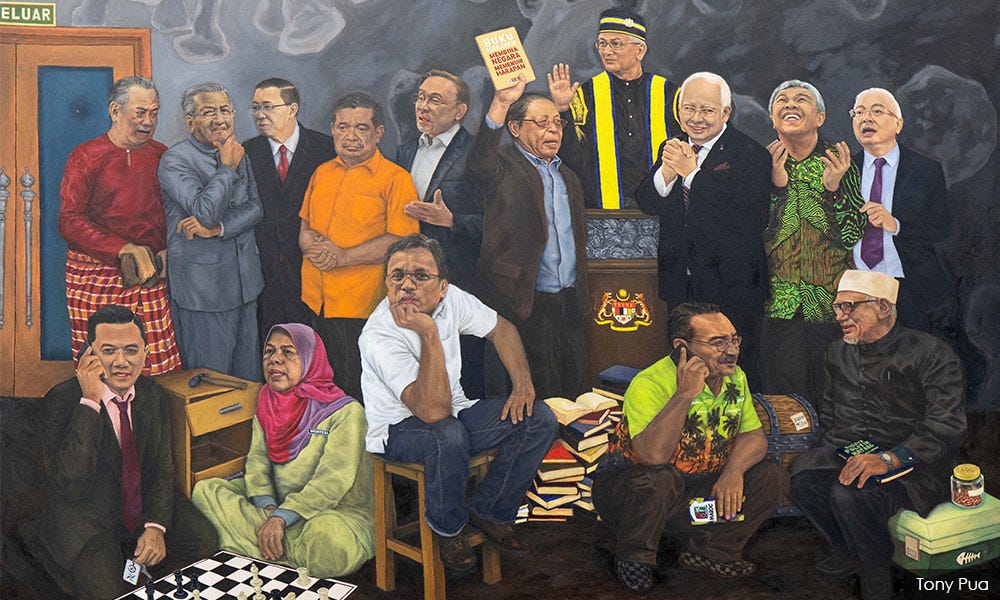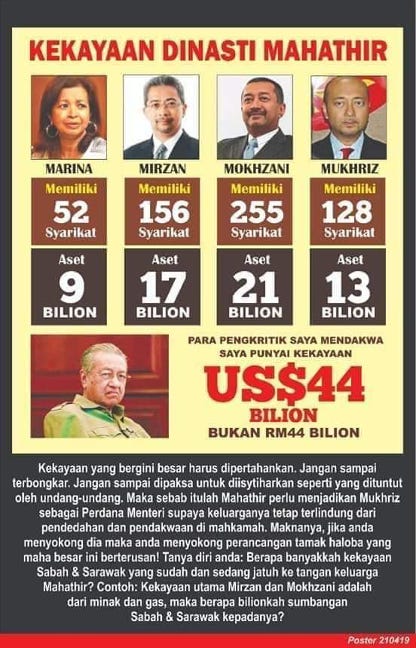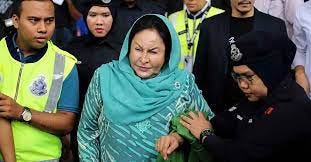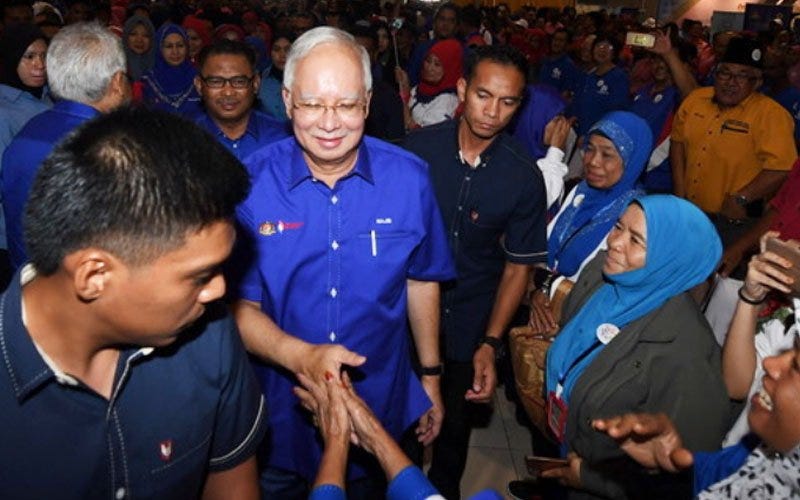#4 TOP STORY OF 2022: Growing discontent across Malay society
This could be UMNO’s gravest challenge
This story discussed the areas of Malay discontent that led to the GE15 election result. More than 16,600 readers.
The Johor Sultan Ibrahim Sultan Iskandar’s declaration during the opening of The Johor State Parliament, declared Johor may choose to secede from Malaysia if the federal government fails to fulfil its rights as written within the Federation of Malaya Agreement.
This statement has a number of layers of meaning.
Outwardly, this is a demand for more funding. The Sultan is claiming Johor has been neglected and this needs to change. Deeper down, there is a message concerning disenchantment between a state and the federal government. At an even deeper level, the message indicates friction between different groups within the Malay polity.
This is already beginning to have a ripple effect across other peninsula states.
The Malay-centric parties have neglected their support base
The federal government has taken the Malay population for granted. It has failed to look after the very stakeholders which are keeping it in power.
Malay society expected the Malay-centric government coalition would staunchly defend Malay rights, the monarch, and Islam.
Malays (and the rest of Keluarga Malaysia) are suffering from the effects of rising prices, diminishing spending power, and food shortages. Incomes are not keeping pace with living expenses, where families are slipping into poverty in large numbers. This is hardly spoken about by cabinet level leaders, who appear oblivious to the Rakyat’s or peoples’ plight. The negative symbolism of prime minister Ismail Sabri Yaakob wearing a RM 5,000 Burberry shirt sparked outrage from his insensitivity.
The PAS leadership has clearly shown disrespect for the Sultan of Selangor, Sultan Sharafuddin Idris Shah. PAS Selangor Commissioner Ahmad Yunus Hairi even lied about what was discussed, receiving a Royal rebuke, after being summoned to the Istana by Sultan Sharafuddin.
Nowhere have Malaysia’s Malay leaders stood up in support of the monarch.
Islam has been made a sham with JAKIM long denying breaches in halal protocols in Australia, rendering much of Malaysia’s meat supply non-halal and even haram. Politicians and Islamic leaders have been silent on the issue of halal integrity, a major pillar of Islam, except for the Mufti of Negri Sembilan, Mohd Yusof Ahmad.
The Malaysian Muslim Consumers Association (PPIM), along with Pekemas and Sahabat 99, brought the above issue to public attention, due to the apathy and lack of willingness of JAKIM to act.
Malaysian Armed Forces (ATM) veterans, usually very closely aligned with UMNO and the monarchy, have been very critical of the government over the last couple of months because of lack of rising cost of living assistance. This spilled over to criticism of corruption within the Ministry of Defence (MINDEF), where some veterans even called for the formation of a new political party.
The veterans threatened to call a protest march on the birthday of the Agong or king, on 6th June. This forced the defence minister Hishammuddin Hussein to intervene by offering concessions and assistance to satisfy the group.
A Malay NGO, Komuniti Muslim Universal (KMU) complained about state sponsored discrimination against ethnic minorities of different faiths through laws and fatwas, which project institutional intolerance.
KMU further complained politicians and state officials have given tacit approval to vigilante groups to enforce compliance by Muslims to shariah laws, in an extrajudicial manner. Organizations like Skuad Badar in Kedah would raid budget hotels looking for Muslim couples who are committing Khalwat, without any legal authority.
Growing criticism from the Malay community
Ever since the ‘white flag movement’ that was quickly suppressed by authorities last year, there has been growing criticism the Malay-centric parties governing the country are not the protecting Bumiputeras. Many are scorning government hypocrisy through social media.
Pictures in the media of former prime minister Najib Razak as a guest of the king at the Istana, led to outcries that Najib, who has been sentenced to a jail term, is exempted from serving his time immediately because of his special privilege.
The hypocrisy of giving Najib a stay of sentence is considered unfair as many citizens are jailed on much lessor convictions, not being treated the same under the law as Najib. The failure to immediately jail Najib and allow him to make his appeal from prison has allowed him to make destabilizing power plays within UMNO.
The Najib situation is symbolic of the loss of ethics in society.
Just a few days ago, hundreds of Malaysia’s lawyers were stopped by police marching to parliament to protest attacked upon the legal system, specifically upon the Court of Appeals judge who upheld the former prime minister’s conviction for embezzlement from SRC, a 1MDB subsidiary.
The myth of Malay unity can be seen for the fallacy it really is
While the Rakyat were suffering from the effects of a public health emergency and now runaway inflation, the Malay-centric parties have been continually bickering among themselves over the last two and a half years. This led to an unnecessary state election in Johor, costing close to RM 100 million.
Instead of dealing with the Rakyat’s suffering, most news is about whether there would be an early election, or not?
The culture of feudalism, patronage, and cronyism dominates the political system. However, some cracks, although very small ones are appearing. This is not coming from the opposition side of politics, but from within Malay society itself.
This makes the challenge unique. Traditionally, the non-government parties, the reformasi movement, and the NGO Bersih pushed the ‘resistance’ to indifferent government.
This time discontent is becoming more overt from within sections of Malay society.
This is not a homogenous rupture of discontent. Its coming from different directions, i.e., the Islamists, Royalty, and the Rakyat through Malay NGOs.
There is one core problem here. The Malay polity who are ruling the country are apathetic to rising poverty, a financially stressed middle class, and economic malaise within rural heartlands. Keluarga Malaysia, the NEP, Ketuanan Melayu, and dividing society racially, are useless narratives when people need economic assistance to survive.
The ruling elite’s dash for wealth is becoming more obvious. One just needs to look at the personal wealth accumulated by Malaysian leaders. Most have developed their own corporate portfolios. Political careers are the path to wealth, with little risk to being caught out.
UMNO introspection
Some within UMNO see the 1MDB case as a political one, rather than a corruption case. They see what Najib did as replenishing the ‘war chest’, essential to fight elections with. This has been going on for decades. The Malay polity used to protect its own until Mahathir used 1MDB for his own political advantage. If it hadn’t been for intra-Malay bickering, Najib would have never faced court. Such is the narrative of the UMNO grouping, led by the ‘court cluster’.
UMNO is not the same party it once was. After Merdeka, the UMNO membership consisted of school teachers and civil servants who had a vision of an independent Malaya, and later Malaysia. The party now is full of opportunists who want business benefits and opportunities from membership.
According to UMNO Secretary general Ahmad Maslan, UMNO has 3,391,236 members. Ironically, UMNO received less votes than its registered membership last federal election. In the recent Johor State election, UMNO received 406,997 votes, much less than the 452,642 registered members in the state.
Paradoxically, UNDI 18, those new voters who are eligible to vote in the coming general election, could be the saviour for the Malay-centric parties. This is counterintuitive what the political pundits are saying. Within the young today in Malaysia, Malays are much more religiously conservative than their parents and grandparents. They are Muslim’s first. It will actually be this young cohort that will deliver the next government. The last Johor state election gave a little glimpse of this.
A disgruntled Malay population is a potential threat to the Neo-feudal state
Much of the problem is the current prime minister Ismail Sabri. Past prime ministers were experts at working with and appeasing the country’s various Malay stakeholders. They could talk to the Royal households. They could talk to the corporates. They could talk to the Rakyat. This appears to be Ismail Sabri’s weakness, which should be a prime minister’s most powerful talent. Defence minister Hishammuddin showed that talent to perfect in the way he handled the ATM veteran groups.
The role of a Malay-centric prime minister is to maintain the status quo. Ismail Sabri is failing badly with this, and the UMNO leadership know.
This is UMNO’s greatest electoral liability.
Subscribe below:





